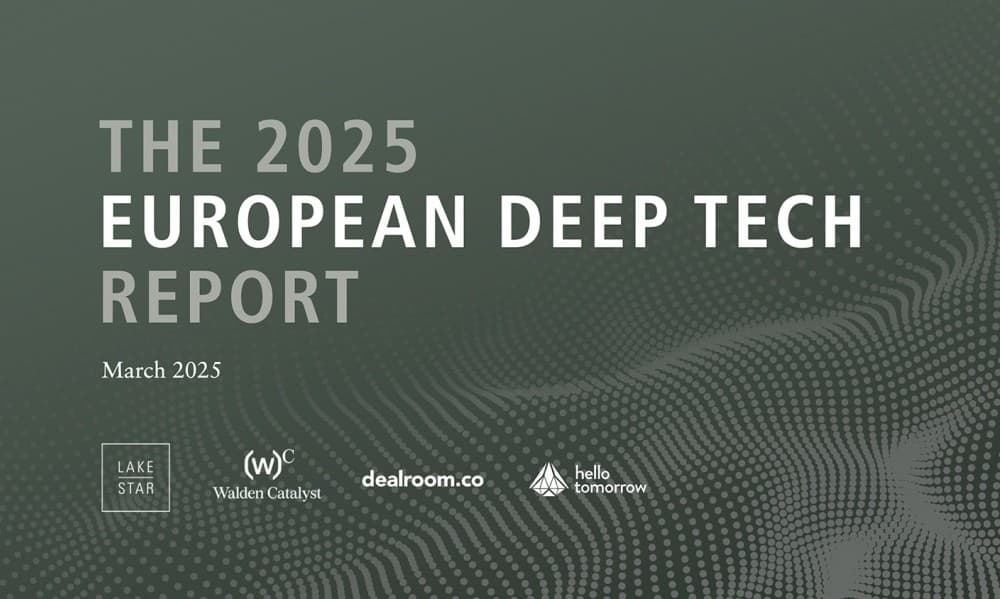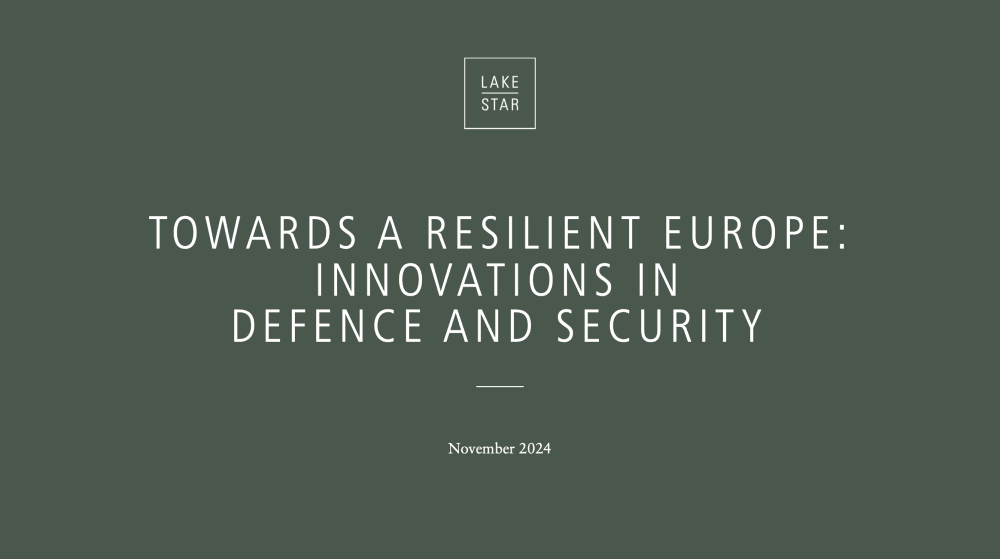Insights|
Come on board: How to choose the people that will help you grow
How do companies hire the best people, not just for the job in hand but to help them on the path to growth? Asha Mistry, Head of Talent and People at Lakestar, shares her learnings.
null

My role at Lakestar has two halves – I lead HR for the fund and also partner with our portfolio companies’ founders and leadership teams to advise them on human capital management. There are common threads gleaned from both roles and my background in executive hiring, leadership development and coaching can help point company founders towards hiring for growth.
Be clear about your mission and purpose
Culture and purpose bind a company together: as the pulse of the organisation, they directly impact how you operate and how you behave.
At Lakestar, we believe that companies with a purpose have a strong culture and their people are more passionate about striving towards the company’s success. It gives them a sense of contribution and belonging. What’s more, purpose-driven employees are both loyal and prepared to question decisions or offer their opinion because they are driven by what they feel is right for the company rather than just their personal success.
People need to believe in their leaders and be part of the journey. That’s why storytelling is key.
For early-stage companies in particular it is important that the founder communicates a clear mission and vision of the company. People need to believe in their leaders and be part of the journey. That’s why storytelling is key. Your company vision and culture are then embedded into your hiring and development process. An HR or talent acquisition partner can help ensure that your hires add to the company values, by analysing the candidate’s soft skills or emotional intelligence (EQ) so that you are not just hiring for skills, but also for people that contribute to the overarching success of the company.
Free up your time by letting an expert do the task for you
It’s OK to let go a little bit. You don’t need to do absolutely everything. You can create a cushion around yourself with experts in other fields. Your time is valuable, so spend your money, not your time. You are acquiring experience when hiring, which means the wage might cost more than you had expected. Don’t worry about this: attracting someone with an increased base salary is unlikely to drain your resources – that person might be the difference between increasing your revenue tenfold versus fivefold.
This is especially true for smaller businesses or start-ups that want to scale. If a company is growing from 30 people to 60 in a short period of time, it is not possible for the founder to interview every single person. It’s never too early to hire somebody to manage your recruitment processes; this is delegating responsibility and offers structure and a framework for scaling.
Having an HR manager also plays to the organisational design which defines what roles are important. An experienced HR Partner should be considered as one of the core roles that can help build that infrastructure to scale.
A talent manager makes the interview process more efficient and effective. At this stage you need competency-based questions in order to evaluate properly. Having a casual conversation will not give you a 360-degree evaluation of the candidate’s ability to be successful and contribute to the growth of your company. The current talent market is very competitive: once you have defined the role, expedite your recruitment process, be structured and make decisions, as procrastination may leave you behind.
It pays to be realistic at interview and not just tell the candidate the positives about the job. Telling them the truth about the challenges they will face reveals the candidate’s ability to solve problems and add value.
Maintain a holistic approach to hiring
We often see leaders hire carbon copies of themselves because they believe there is more guarantee that the hire would be successful. At Lakestar, we have a greater appreciation for complementary skills and experiences to make the team more holistic and well-rounded.
Hiring affects all parts of the organisation so you need to address the funnel from different levels. This ranges from offering ongoing learning and development to supporting your employees’ growth and development to having a robust graduate programme or post-MBA programme.
This pandemic has unearthed a new talent pool, with an increase in people reskilling and changing industry sectors. Some industries have been dying off because of new technologies but they have people with transferable skills that can enhance your company.
Having a wide view of what skills your company requires can give surprising results. For example, the real estate industry has seen a massive increase in technology, such as virtual viewings. Why does a new hire need to have real estate experience if perhaps technology experience offers a better fit? There should be no hard and fast rule about needing industry experience.
Because of this wider talent pool, companies have been broadening their aperture of the candidate profile. For example, in the start-up scene we’re seeing more appetite for people who have been operating in large corporates because they have the experience of scaling and setting up the infrastructure to be agile as a business grows.
A diverse workforce is a strong workforce
Diversity always creates great teams, because when you have people coming from unique backgrounds you will encourage different opinions and experiences and more likelihood that everybody’s blind spots will be covered.
Diversity needs to be considered holistically. At Lakestar we encourage our portfolio companies to consider all forms of diversity, not only gender and race. Diversity of age, sexuality, upbringing, culture is equally as important. Start-ups have a unique opportunity to embed diverse recruiting practices and culture from the beginning and not make the mistakes many multinationals have experienced.
The short game versus the long game
At Lakestar, we know that hiring strategically does not mean you hire slow – you are buying experience, not always hiring for potential. You need a combination of learners and doers, to help you get closer to where you want to be.
The ‘war for talent’ is commonly used, mostly as an excuse to hire the same profile. There was a perception that there was a small percentage of people that were desirable and everybody was trying to attract them. In those days, companies hired specific roles with very defined responsibilities and there was little strategic thought about the impact of hiring somebody from a slightly different background to form a well-rounded team.
The ‘war for talent’ no longer exists. In fact, there is more talent out there. We’re now seeing different schools of people coming into the market who have been upskilling or reskilling. There is an appetite to attract these people who are not coming from a narrow background. But it’s still a competitive market and companies are moving quickly and capturing interest by paying more.
Sometimes it just doesn’t work out
At Lakestar we know that it’s worth waiting for the right hire, especially when you’re in growth mode, because one bad hire takes a lot longer to recover from than waiting six months for the right person.
It doesn’t end with hiring: you also need to create an environment where people can thrive and are supported. This includes having a robust onboarding plan with deliverables on both sides, performance management, and clear goals for success.
One bad hire takes a lot longer to recover from than waiting six months for the right person.
There have been several articles recently about ‘the great resignation’. Company tenure is no longer a sign of a great candidate. Tenure has reduced significantly from an average three or four years in a company: now it’s more like 14–16 months. When you add that to the effects of the pandemic, where people have more often reflected on what is important to them, the resignation issue has heightened. A recent survey found that 85 per cent of workers are considering changing roles. If that figure is accurate, we may be seeing the greatest reshuffling of talent in our lifetime.
You can address this in many ways, such as through culture and compensation but some people on the edge of resignation may be open to being offered something new that appeals to their purpose and passion.
The new way of working
At Lakestar we prefer to use the term flexible working than remote working: flexible working is here to stay and will be personalised depending on the company and where they’re operating.
A huge positive of this pandemic has been the increase of innovation in technology – there are so many start-ups founded over the past year that enable companies to employ staff in locations where they do not have an office – this is a game changer as it’s increased the talent pool, not just for engineering. Offshore engineering hubs have been common for many years, from India to Eastern Europe. Now Portugal is the hot spot for offshore centres. At Lakestar, we are also seeing this with non-engineering roles – the flexibility of location means sales teams can be more geographically dispersed, and closer to the customer.
The pandemic has also proved that people can work from anywhere. From a company perspective, it has really democratised access to talent as companies are no longer restricted to particular geographic locations.
All companies have had to adapt, even those that were already flexible. The future lies in companies being flexible as some people might want to come in regularly, some might only want to work from home and some will want a hybrid model. Companies now have to accept that 9 to 5 working no longer exists. People want more flexibility; they value personal life equally if not more than their profession. Mental wellbeing and wellness have also become increasingly important.
With this in mind, there should be a balance; teams should get together regularly – you can get so much more out of a ‘corridor conversation’ than in 10 emails or scheduled video calls.
The ideal candidate is out there
Successful people are characterised by their agility, in terms of their thinking, the way in which they work, with the ability of being flexible and transferable in their skills. They can hold a skyscraper view as well as the ability to get into the detail.
You will want to hire people with a growth mindset and an understanding of the macroeconomic factors that impact your company and the environment that you’re competing in. They must also be able to make decisions and lead with compassion. At Lakestar we’ve found that leaders with high emotional intelligence build businesses with strong culture and values.
Conclusion
It’s an exciting yet highly competitive market out there. Be true to your vision and your values. If you go out with your best intentions and with your story you will hire the right people and retain them.
- Hire strategically and wait for the right person. You might need to hire for a particular role but if your company is growing, you could get there quicker with a slightly different hire.
- Don’t be afraid to hire someone with more experience than you. They are your future and they in turn will hire people with more experience. Collectively, you will have a brighter organisation
- You need to have a combination of skill sets to help your business expand
- Let go a little bit
This article is part of the Lakestar Briefing, a periodical publication about Lakestar's portfolio companies and our network of inspiring minds we like to work with.
Click here to subscribe










